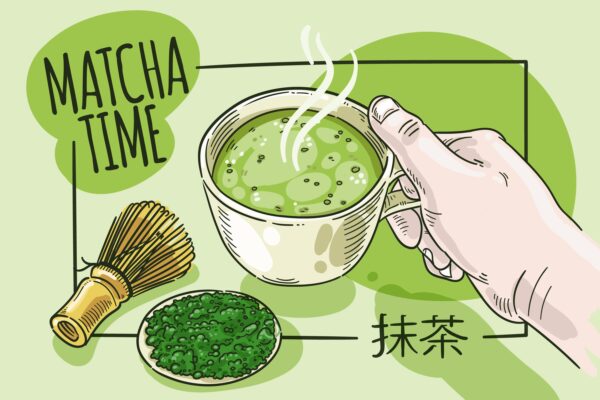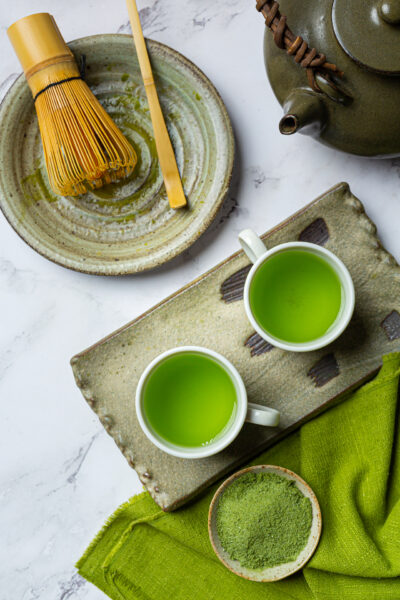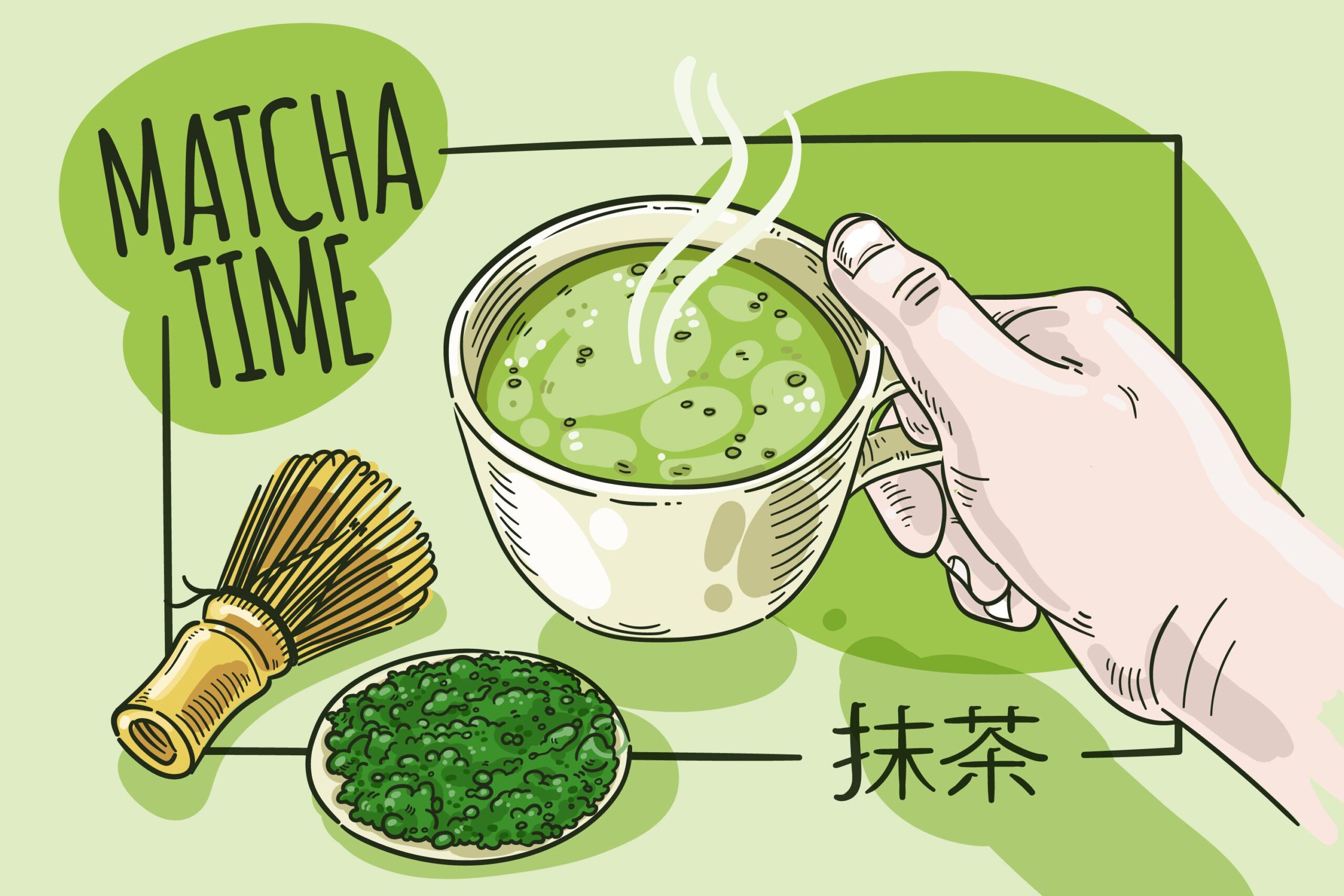
The Roots of Japanese Green Tea
Green tea, known in Japan as “Ryokucha,” has its roots deeply embedded in Japanese culture. It’s believed that tea was first introduced to Japan by Buddhist monks in the early 9th century. They brought back tea seeds from China, which were then cultivated in various regions of Japan. Over time, green tea evolved from a luxurious item enjoyed by nobility to a beloved daily drink of the people.
Varieties of Japanese Green Tea
- Sencha: The most popular and widely consumed, Sencha is known for its delicate balance of sweetness and bitterness.
- Matcha: The star of the Japanese tea ceremony, Matcha is a finely ground powder made from shade-grown tea leaves, celebrated for its rich flavor and vibrant green color.
- Gyokuro: Known as the “jewel dew,” Gyokuro is shaded for longer than Matcha, resulting in a sweeter taste and a light, seaweed-like aroma.
- Hojicha: A roasted green tea, Hojicha has a distinctive earthy aroma and a reddish-brown color, offering a unique twist to the traditional green tea flavor profile.
- Genmaicha: A blend of Sencha or Bancha with roasted brown rice, known for its nutty flavor and is often referred to as “popcorn tea.”

The Japanese Tea Ceremony: A Meditative Art
Central to Japanese green tea culture is the traditional tea ceremony, known as “Chanoyu” or “Sado.” This ritual is a choreographed art, symbolizing harmony, respect, purity, and tranquility. The tea ceremony goes beyond just preparing and drinking tea; it’s a spiritual experience, encouraging participants to be present in the moment and connect with others in a space of peace and mindfulness.
Health Benefits of Green Tea
Green tea is not only celebrated for its taste and cultural significance but also for its health benefits. Rich in antioxidants, it is known to aid in reducing inflammation, promoting heart health, and even potentially lowering the risk of certain cancers. The calming effect of green tea is attributed to the presence of L-theanine, an amino acid that promotes relaxation.
Experiencing Green Tea in Japan
For those traveling to Japan, a visit to a traditional tea house or participating in a tea ceremony is a must. Regions famous for their tea cultivation, like Uji in Kyoto, and Shizuoka, offer tea plantation tours and tastings. It’s a perfect way to immerse yourself in the scenery and tradition of Japanese green tea.

